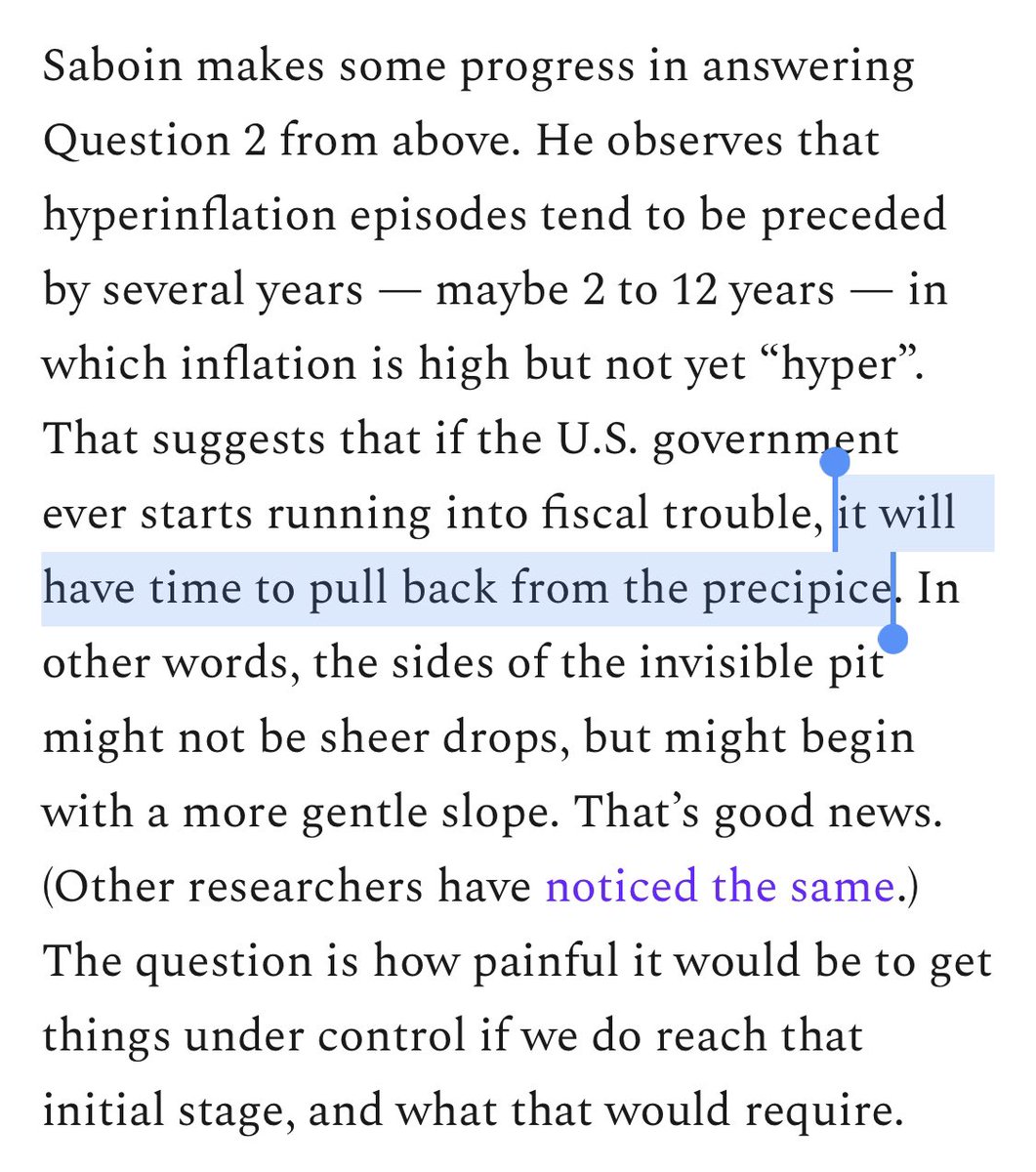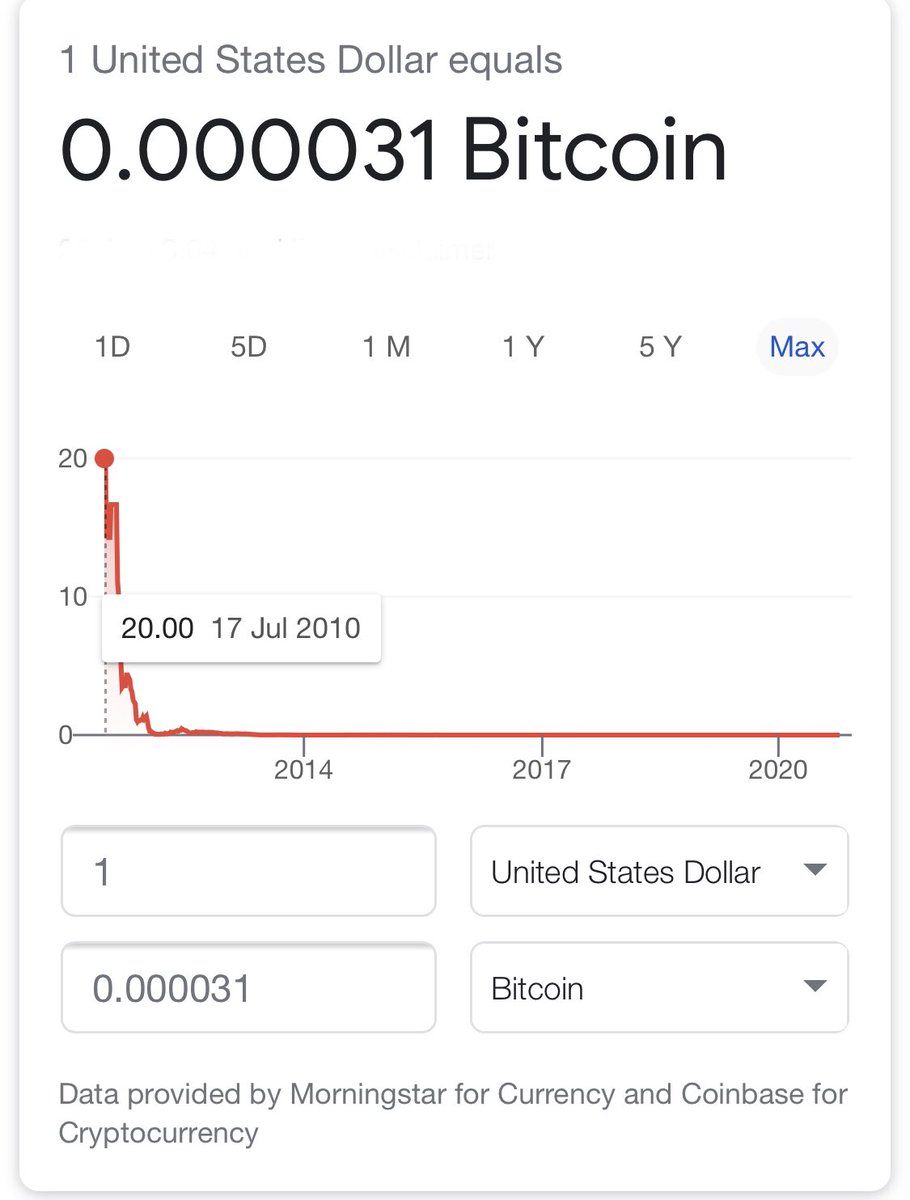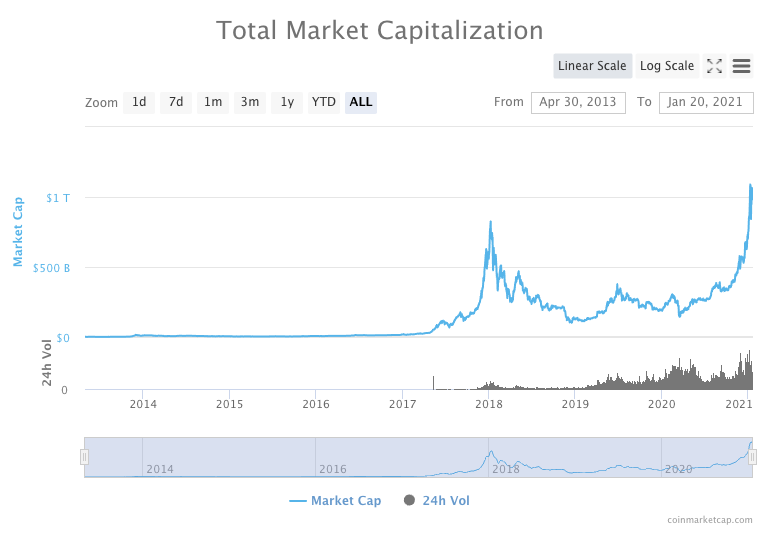
Courageous article by Noah.
This a situation where the 50 IQ and 150 IQ guy shake hands and say the obvious thing: buy Bitcoin.
This a situation where the 50 IQ and 150 IQ guy shake hands and say the obvious thing: buy Bitcoin.
https://twitter.com/noahpinion/status/1352707799969533953
CPI obscures more than it reveals, because price inflation is a vector, not a scalar.
The inflation is already here, it’s just unevenly distributed.
The inflation is already here, it’s just unevenly distributed.
https://twitter.com/balajis/status/1310317118844317696
Price inflation is obvious in financial markets. Equities are way up thanks to Cantillon effect.
It’s also obvious in the big ticket areas where regulation & subsidy has blocked innovation: housing, education, healthcare.
Tech *partially* offset this by reducing cost elsewhere.
It’s also obvious in the big ticket areas where regulation & subsidy has blocked innovation: housing, education, healthcare.
Tech *partially* offset this by reducing cost elsewhere.
https://twitter.com/balajis/status/1164303322641080320
People are mostly focused on the ephemera of Twitter rather than interrogating exactly how many trillions were printed and where all that money went.
And all the incentives are set up for the state to print trillions more without limit. bloomberg.com/opinion/articl…
And all the incentives are set up for the state to print trillions more without limit. bloomberg.com/opinion/articl…
Contra Noah, I don’t believe that any warning signal will allow the US to turn back from the cliff.
The last few decades of US policy, from the Iraq War to the financial crisis to the coronavirus, show that American leadership is not capable of avoiding predictable outcomes.
The last few decades of US policy, from the Iraq War to the financial crisis to the coronavirus, show that American leadership is not capable of avoiding predictable outcomes.

If we need warning signals, the obvious one is the depreciation of USD vs BTC by several orders of magnitude.
The same technologists who forecast everything from cloud computing to the coronavirus bet on crypto. The same officials who missed everything have the opposite take. 🤷♂️
The same technologists who forecast everything from cloud computing to the coronavirus bet on crypto. The same officials who missed everything have the opposite take. 🤷♂️
https://twitter.com/balajis/status/1320078685391581184

The big thing I agree with Noah on is: no one knows when hyperinflation begins. $787B didn’t do it. ~$10T hasn’t done it — yet.
But the grand finale will eventually happen, because no one in power has an incentive to stop printing.
But the grand finale will eventually happen, because no one in power has an incentive to stop printing.
https://twitter.com/balajis/status/1350710700499324935
Postscript: any indicator within the system will be gamed.
Other countries have even censored real inflation rates.
The only way to bet against the system is from the outside. Build the exit. Buy BTC. And trust only decentralized cryptographic truth.
wsj.com/articles/SB100…
Other countries have even censored real inflation rates.
The only way to bet against the system is from the outside. Build the exit. Buy BTC. And trust only decentralized cryptographic truth.
wsj.com/articles/SB100…

• • •
Missing some Tweet in this thread? You can try to
force a refresh



